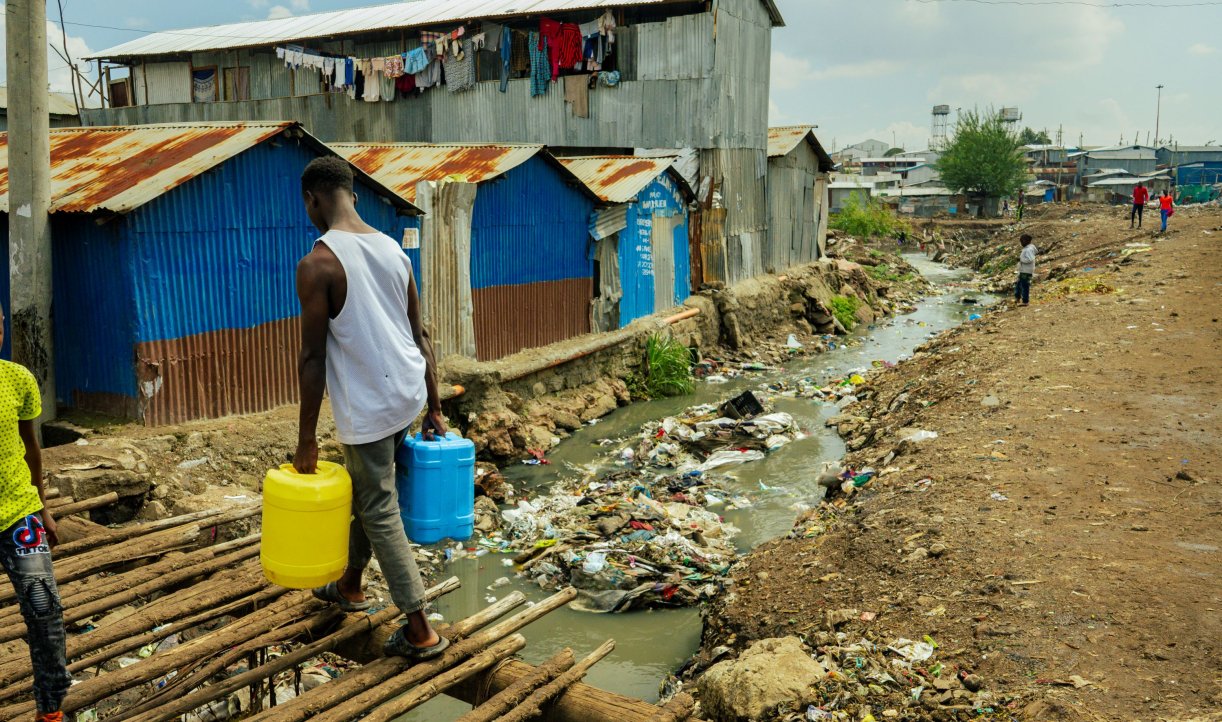When floods hit my hometown in Kenya last year, it was the poorest communities who suffered most. In Nairobi, where more than 3 million people live in vulnerable homes made of wood, sheet metal and concrete — many in low-lying flood plains — the waters faced little resistance. Entire homes were swept away as people slept.
The world’s housing and climate crises are deeply intertwined, wreaking havoc and reshaping life in cities around the world — from tragic flooding in Mexico to record-breaking heat waves in India. Urban communities are on the frontlines of climate extremes, bearing the brunt of escalating impacts. And while they have long been hubs of innovation and climate leadership, they cannot tackle this crisis alone.
The lesson is clear: National governments need to partner with cities to address the world’s housing and climate crises simultaneously. Poor-quality housing in highly vulnerable areas, combined with little to no access to basic services, creates a pernicious triple blow. The impacts ripple across urban and national economies.
After flooding in the neighborhood of Mathare, Nairobi, wiped out dense housing near the water, residents are working to stabilize the riverbank through greening and restoration. Photo by Schuyler Null/WRI
Some countries like Brazil, Colombia and Indonesia have already stepped forward, recognizing the leadership role that cities can play. For others, the COP30 UN climate summit in Brazil offers a launchpad to reimagine urban leadership and commit to bold- and inclusive action. In doing so, nations can unlock the power of cities as a major force in climate-resilient economic growth.
Today, cities produce 80% of global GDP, and they’re on track to house two-thirds of humanity by 2050. Yet in low-income countries, more than 60% of urban residents —over 1.1 billion people — live in informal settlements, sometimes called “slums.” That means 1 in 8 people on Earth lack resilient homes and basic infrastructure, making these communities uniquely vulnerable to the impacts of climate change.
So too are urban economies. The informal sector, despite being disregarded by policymakers for generations, is the lifeblood of many cities. It accounts for 50% to 80% of urban employment across the Global South. Informal businesses and services, like minibus operators and water deliverers, fill the gaps when formal municipal services don’t reach households.
On the frontlines of heat waves, landslides and floods, these neighborhoods often pioneer resilience-building efforts with resourceful, frugal innovations. In Nairobi’s Kibera neighborhood, 12 community-managed public spaces serve as first responder hubs, tame floodwaters and bring vital services to families, like laundry areas and small business kiosks.
Locally led initiatives like these should help shape cities’ formal climate efforts, which should in turn feed into – and be supported by – national governments. Yet informal settlements are almost universally left out of national climate plans and funding. Only 16 countries mentioned informal settlements in their previous national climate plans, known as Nationally Determined Contributions (NDCs).
Flooding in an informal settlement in Jakarta, Indonesia, in March 2025. Informal settlements are particularly vulnerable to the escalating impacts of climate change. Photo by Igro Rinaldi/Unsplash
As countries commit to new NDCs, they should set specific targets and resources for upgrading informal settlements with decent housing, securing land tenure, ensuring reliable access to basic services, and creating jobs. These actions would not only help alleviate poverty and inequality, but also keep people safer when the next flood or heat wave strikes.
Bringing communities into national climate plans can also unlock more funding for local priorities like housing. Through the Coalition for High Ambition Multi-Level Partnerships (CHAMP) , Kenya’s national government worked with local counties on its latest climate plan and now prioritizes flood control in informal settlements. It has also set up a much-needed mechanism to funnel resources for climate adaptation to vulnerable communities.
The momentum is building: 77 countries have now committed to CHAMP, promising a greater role for partnership between national and local governments.
The UN holds a vital key to unlocking urban transformation. By spotlighting urban action and informal settlements in future Global Stocktakes — and elevating these issues within international development frameworks like the post-2030 Agenda — the UN can galvanize national governments to close the urban equity gap.
At COP30, the ministerial round table on housing and informal settlements is a key step in the right direction. Its recommendations could steer overdue resources and adaptation finance to this long-overlooked agenda.
With these foundations in place, cities will be better positioned to improve climate resilience while supporting the hundreds of millions of people who live in informal neighborhoods and power their economies. They can team up with neighborhood groups and urban poor associations to create higher-quality housing and improve livelihoods — while scaling these efforts by partnering with national governments.
Iloilo City, the Philippines provides one blueprint. In the wake of Typhoon Fengshen, which submerged 80% of the city, the local government and local NGOs partnered to provide land, organize savings groups, finance, and co-design new housing projects. Almost two-thirds of the city’s poor families were settled in higher-quality housing without forced evictions or distant relocations. Since then, Iloilo City’s community-led housing projects have inspired similar projects in a dozen cities across the Philippines.
A community-led housing project in Iloilo City, Philippines. The city’s innovative program helps communities gain access to high-quality housing that can withstand floods, storms and other climate impacts. Photo by WRI
COP30 host Brazil, where over 16 million people live in informal settlements, provides another model. Its new Periferia Viva (“Living Peripheries”) federal program offers funding and technical assistance to states and cities for upgrading informal settlements. And Brazil’s new climate plan explicitly commits to “climate federalism” and addressing cities’ climate needs.
The pathway to climate action that delivers for people and the planet runs through our cities. Countries must prioritize decent, secure housing for the communities who keep urban economies running.

